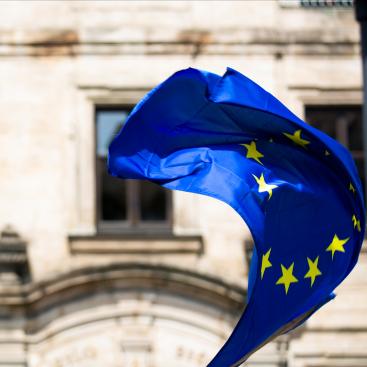Ideas

As sustainable investment is confirmed both as a crucial need and a growing trend, climate and ESG1 corporate disclosures remain on top of regulators and investors’ agenda. The European Union (EU) is currently revising its requirements for corporates sustainability disclosure (Corporate Sustainability Reporting Directive or CSRD). International bodies, the International Financial Reporting Standards (IFRS) and International Organization of Securities Commissions (IOSCO), are aiming for a climate disclosure “building block” to align practices at the global level. In June, the US Securities and Exchanges Commission (SEC) finalized a public consultation on corporate climate disclosures, to which Mirova responded. We share below our views that we have conveyed to the SEC and across various jurisdictions and initiatives (the EU, TCFD2…) in order to build robust, meaningful and useful frameworks for corporate climate and sustainability disclosure.

As sustainable investment is confirmed both as a crucial need and a growing trend, climate and ESG1 corporate disclosures remain on top of regulators and investors’ agenda. The European Union (EU) is currently revising its requirements for corporates sustainability disclosure (Corporate Sustainability Reporting Directive or CSRD). International bodies, the International Financial Reporting Standards (IFRS) and International Organization of Securities Commissions (IOSCO), are aiming for a climate disclosure “building block” to align practices at the global level. In June, the US Securities and Exchange Commission (SEC) finalized a public consultation on corporate climate disclosures, to which Mirova responded. We share below our convictions that we have conveyed to the SEC and across various jurisdictions and initiatives (the EU, TCFD2…) in order to build robust, meaningful and useful frameworks for corporate climate and sustainability disclosure.

Today’s world is changing, led by long term transitions: demographic, technological, environmental and related to corporate governance. In this interview, Amber Fairbanks and Manon Salomez give their view on the impact of Covid-19 on corporate governance, and share Mirova’s vision, putting the emphasis on the creation of shared value over the long term.

Improving the transparency of financial institutions on environmental and social issues is a strongpoint of the European Commission's action plan on sustainable finance. The cornerstone of this enhanced transparency, the Sustainable Finance Disclosure Regulation (SFDR) which entered into force in March 2021 for its initial phase.

But they will not have it.

The concept of impact investing is increasingly prevalent in the financial industry. Yet there is, to date, no clear consensus on what this notion comprises, nor on the financial sector’s exact relationship to reorienting our economies towards sustainable development. At Mirova, certainly, impact serves as a core structural feature of our corporate purpose. Therefore wa wanted to clarify our vision of impact

The European Commission recently closed its consultation on the Renewed Sustainable Finance Strategy. Based on the inputs collected, the Commission will come up with a new strategy to serve as a keystone over the coming years as the EU regulatory framework on sustainable finance evolves.

This is a methodological document aimed at clarifying how Mirova takes into account sustainable development issues in the framework of the environmental, social and governance analysis of each sub-sector of activity.
